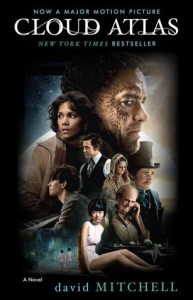Because I am in Nashville cheering on the University of Connecticut women’s basketball team’s pursuit of yet another national championship, this week’s entry is an abbreviated one.
A Brief Interview With Emma Donoghue
Emma Donoghue is the author of eight novels and four short story collections, in addition to a number of dramatic productions. Her 2010 novel Room was nominated for the Man Booker Prize. Her latest book, Frog Music [Little, Brown, $27.00], publishes on April 2.
Read why Emma Donoghue includes “a bitch character in every book.”
Senior English Major Wins the 2014 Rose Prize for Literary Criticism
I was intrigued by the description of English major Katie McLaughlin’s winning paper:
When senior English major Katie McLaughlin decided to write her capstone paper on collaborative Internet fiction, there was no official name for what she was writing about. So she made one up. She dubbed websites where people write, edit and read stories together “narrative communities,” and these narrative communities are what inspired her capstone paper, “‘Everybody Writes’: Re-imagining Reader, Writer, and Text in the Online Community.”
Classic dystopian novels forecast a bleak future — soon
New reprints of classic dystopian novels show that a bleak view of our future has enduring appeal. Seattle Public Library librarian David Wright rounds up titles by George Turner, J.G. Ballard, John Brunner, Russell Hoban and John Wyndham.
Here’s the book on Wright’s list that most piques my interest:
Russell Hoban’s “Riddley Walker” (Gollancz, $17.95) is easily one of the most ingenious novels ever written. Set during a distant Dark Age long after our current civilization has given itself to the fire, the entire narrative is rendered in a hyper-phonetic, punning version of devolved English. We riddle along with Walker as he grapples with obscure legends of our own bad times, including that particularly seductive myth: the myth of progress. Readers who get the hang of Riddleyspeak (it’s easier than it looks) are in for a profound, transformative journey into the human heart, where fires of creation and destruction are kindled.
 This sounds like “Sloosha’s Crossin’ an’ Ev’rythin’ After,” the central portion that functions as the turning point in David Mitchell’s novel Cloud Atlas. Set in the future, this section features language like this:
This sounds like “Sloosha’s Crossin’ an’ Ev’rythin’ After,” the central portion that functions as the turning point in David Mitchell’s novel Cloud Atlas. Set in the future, this section features language like this:
Adam, my bro, an’ Pa’n’me was trekking’ back from Honokaa Market on miry roads with a busted cart axle in draggly clothesies. Evenin’ catched us up early, so we tented on the southly bank o’ Sloosha’s Crossin’, ‘cos Waipio River was furyin’ with days o’ hard rain an’ swollen by a spring tide. Sloosha’s was friendsome ground tho’ marshy, no un lived in the Waipio Valley ‘cept for a mil’yun birds, that’s why we din’t camo our tent or pull cart or nothin’. [David Mitchell, Cloud Atlas (New York, Random House, 2004, rpt. 2012), p. 239]
Although this language looks strange, I soon found that, as Wright says of Riddleyspeak, it’s easier to decipher than it looks.
